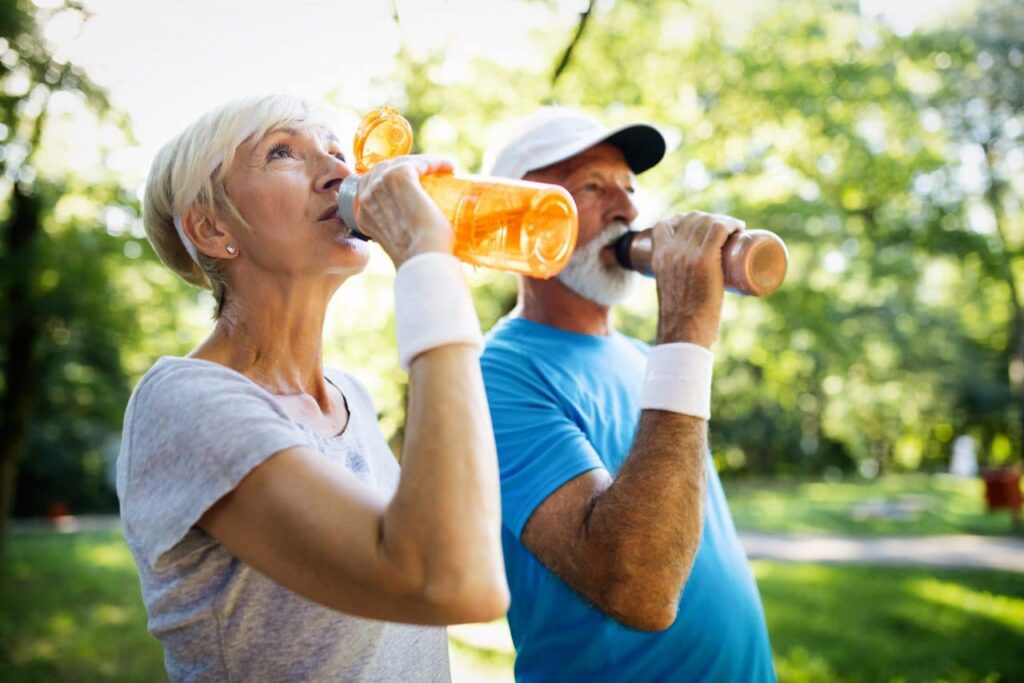Water is still the best source of hydration for your body, especially your kidneys. Water is affordable, has zero calories, and has no additives such as sugar or preservatives.
It is advised that you should drink at least 3 liters of water a day to keep your kidneys healthy. But with all the other drinks on the market claiming to boost hydration, you may start to wonder, “Is water good for your kidneys?”
What is the Role of Your Kidneys?
Typically, people are born with two kidneys. These are bean-shaped organs located at the back of the abdomen, on each side of the spine. Each kidney weighs about 160 grams and measures 10-16cm long.
The kidneys’ primary function is to filter waste products from the body and excrete them in urine. Besides being efficient filters of waste products, your kidneys also perform the following vital functions:
- Maintain normal electrolyte levels by regulating sodium and potassium
- Secrete hormones such as renin which is critical in regulating blood pressure, and erythropoietin, which stimulates the production of red blood cells in the bone marrow
- Produces vitamin D, which is essential in maintaining healthy bones
Your Kidneys and Hydration
“Does drinking lots of water help your kidneys?” you may ask. The answer is yes. Because water contains no additives, it is the best way to stay hydrated naturally. Drinking water to aid hydration helps your kidneys perform better by removing metabolic wastes in the form of urine.
Drinking more liquids also prevents the formation of kidney stones and the development of certain complications such as chronic kidney disease. It cannot be stressed enough that water is still the best for your kidneys. However, you can also stay hydrated with other fluids.
- Green tea: packed with antioxidants that can help protect cells from toxins and carcinogens
- Black coffee: when taken in moderation, coffee not only boosts energy but has also been shown to protect against type 2 diabetes.
- Low-fat milk: keeps you hydrated and is also a good source of minerals such as calcium.
Is Cranberry Juice Good for Kidneys?
Cranberry juice has earned quite a reputation over the years as the juice of choice for kidney problems. It has been shown that drinking eight ounces of cranberry juice a day can promote kidney health.
Cranberry juice also has tannins, which are complex chemical substances derived from phenolic acids that help protect against UTIs, and quinic acid that increases urine acidity, inhibiting kidney stone formation.
Hydration and Kidney Disease
People with chronic kidney disease or on dialysis need to have a different approach to hydration. Instead of the recommended fluid intake for healthy individuals, you will have to carefully limit your fluid intake on dialysis.
It is recommended that dialysis patients drink only a maximum of 32 ounces of fluids per day. If you are suffering from chronic kidney disease, you will have to space out your timings of fluid consumption throughout the day. Some helpful tips for managing hydration for dialysis patients are the following:
- Make a liquid consumption regimen and stick to your daily fluid plan
- Manage sodium intake. Sodium can promote fluid retention.
- Track your fluid intake
- Use small, calibrated glasses
You should always consult with a qualified dietitian when making decisions about your nutrition and liquid intake while on dialysis, since other factors such as your sodium intake can affect how much liquid you should be drinking.
Why Do Dialysis Patients Have to Restrict Liquid Intake?
For patients on dialysis, too much liquid intake can raise blood pressure and cause other dangerous complications. This is because your kidneys control the waste leaving your body, so when they aren’t functioning well, you may urinate very little or not at all. Dialysis takes over the function of clearing waste from the blood, but it can’t remove excess liquid as often as necessary like urinating naturally can, so dialysis patients must carefully track and control their liquid intake.

